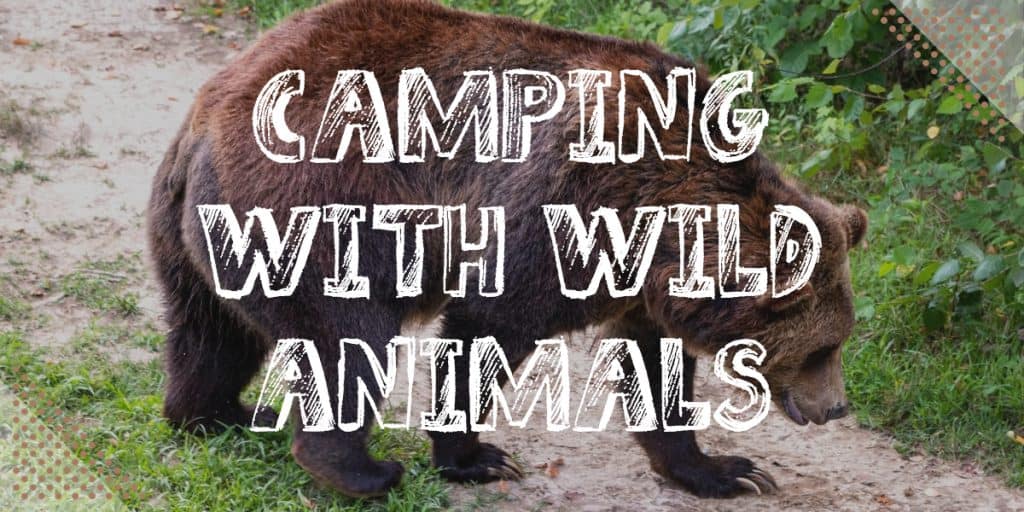
Surviving In The Wilderness: Camping Tips
If you have an action-adventure camping trip booked, you need to be well aware of all the dangers. Camping in the wild is an entirely different experience from going to a campsite. There are no facilities, so one around to help you. It’s just you, and nature, and maybe a friend or partner. Wilderness camping is not something you should consider with children. There are far too many things that can go wrong. Below we have highlighted a few things you should know before going out into the wild.
Table of Contents
Practice Trip
If this is your first wild camping adventure before you go, you should go for a test camping trip. Somewhere a little safety. You could choose to visit a campsite that is located in the particular areas you want to go to so you get a feel for the land. Ensure you pack and unpack your backpack a few times and hike with it to ensure that hiking with the backpack is feasible. Packing and unpacking your backpack in different conditions is also good practice. You may also want to think about how to carry water, and what you should do if the water source was compromised.
The Best Camping Tips
If you keep this advice in mind you should be able to survive your first round of wild camping:
1: Start Small! You don’t need to jump straight into a 100km deep wilderness trip. You can practice your skills, and gradually work up so you know what to do in any situation.
2: BE REALISTIC! if you’re going to be camping deep in the wilderness, know that you will need to bring enough water and food for each day. If not, you may find yourself running out of resources, which could end up being life-threatening.
3: Check the gear! Make sure you have everything you need to survive before leaving on the trip. You don’t want to be halfway into your journey and discover that you’re missing something important.

The Five C’s of Wild Camping Survival
If you want to ensure that you have the best wild camping experience possible, you should memorize and prepare the five C’s. They are Cutting Implements. A swiss army knife is not going to cut it! Though while useful, you need a more substantial blade, a 5” to 6” wild camping knife should be enough. Cover elements, this is far more than just the tent. It is the sleeping bags, tarpaulins sheets, rain cover, and trash covers. These all need to be lightweight so you can pack them up and carry them, as well as be versatile. Combustion devices and not a standard cigarette lighter may not be good enough. You need more heavy-duty fire-making equipment which can create a flame even when the terrain is wet. Consider a mini-inferno disk. Containers, you will need to contain everything. But also think about water. You need a container that you can set inside the fire and allow the water to boil in case it needs disinfecting. Tegh last C is Cordages. This stands for the right kind of ropes, some for hunting, some for many various uses. If you can get these ingrained in your head, you will be far better off.

Staying Safe While Camping With Children
Camping with your family can be a wonderful way to spend time together in nature, but it’s important to stay safe. If you have small children with you on your trip, there are some extra things that you should know when camping.
Most accidents involving children happen in the home so why would they not also happen in a tent? You don’t want to take any risks, so make sure you’re aware of these camping safety tips:
-Make sure you can see your children at all times. Keep them in your line of sight and if they wander off for a second there should always be an adult watching them.
-Before going to bed, tell the kids that if they hear noises that scare them to come and find an adult.
-Take glow sticks with you so that your child can carry one around the campsite at night, just in case they wake up and wander off. You should also take a flashlight and spare batteries.
-You must not let children fall asleep near unattended open campfires, not even for a quick nap.
-Know where your children are at all times and make sure they tell you if they need the bathroom or want to go swimming etc.
-Ensure that wherever you go camping there is always access to freshwater nearby. If not, take extra purification tablets with you in case the supply gets contaminated.
-Make sure your children are aware of the dangers that could be lurking in the woods, such as bears or wolves, and how to avoid them. Make sure they know what to do if they encounter one of these animals by giving them a plan to follow.
You must consider safety every time you go camping, no matter how well you know the area or how many times you’ve been there before. Just like at home, children are curious and won’t always do as they are told, so make sure they understand the rules of safety when enjoying themselves in the wild. If you follow these tips, hopefully, your family’s camping trip will be a fun, carefree time.
Research
Before you embark on a survival camping trip, you need to do a lot of research. Ensure you understand the area you are going to. Are there going to be any particular hazards you need to be aware of, such as snakes, wolves, or bears? Will you need bear spray? Ensure you have all the appropriate navigation gear, such as a compass and maps. If you have never used these items before, you may find it useful to learn how to use them, otherwise, they may prove useless. Think about other ECOGEAR FX you are going to need, too like a flashlight, and backpack.

Camping in a zone with wild animals
You must consider the following if you are camping in bear country:
1: Hang your food from a tree at least 10 feet off of the ground and 4 feet from any branch. Do not use a rope to hoist it up because this could get caught on a branch and then the bear will be able to reach it.
2: Never eat or cook near your tent because the smell lingers and the bear will associate food with this area.
3: Do not sleep in the same clothes you cooked in, as this could also lead to the scent attracting wild animals.
4: If one of these animals approaches your campsite, you should not confront it as this could lead to a dangerous situation. Instead, scare them away by making loud noises and throwing rocks on the ground. If all else fails, use pepper spray on the animal to deter it.
5: You should seek shelter in your car, if possible when camping overnight. If not, keep the windows rolled up and stay inside until morning comes.
6: Take precautions against mosquitoes because they could potentially carry diseases like West Nile or Zika (for example, use bug spray).
7: Never leave food or any scented items outside of your tent overnight. If you want to get rid of food, place it in a bag and put it 6 feet away from the campsite. It is also important to use bear-proof cans when available.
8: People are generally more at risk for bear attacks than bears are at risk for people attacks. If you are camping in the woods with no bear activity, you should never leave food outside your tent because this is exactly what they are looking for.
Make sure you know your limits
If you are camping alone, it is important to stay within your limits. For example, if the temperature suddenly drops to 1 degree Celsius/33 degrees Fahrenheit overnight, would you be able to survive the night without freezing? If not, make sure you camp with someone else.
For your first camping trip in these conditions, go with an experienced camper so they can teach you some tips. For example, if it’s very cold outside, make sure to test the temperature on your sleeping bag before going to bed because this will determine whether you either need to consider buying a new one or adding extra layers of clothing. Sleeping pads are also great if it’s too cold outside, as they help to insulate your body heat. When camping, always be prepared for any type of weather condition and you should never leave your tent until you have to because it is the warmest place during those frigid nights.
Make sure you know what’s in the area
Before going out camping, you must research the area to make sure that there are no poisonous spiders or snakes, marshlands, or quicksand. You should also find out where you can get water from and how far it is from your campsite. Remember that you don’t know what could potentially be lurking in a place you haven’t been before, so always be prepared.
Always bring your phone
It might seem pretty obvious, but you must always have a charged cell phone in case there are any accidents or emergencies. You should also consider bringing an extra battery for this very reason! If you have service in the area where you are camping, make sure to notify someone about where you are going and when you will be back in case they ever need to get a hold of you.
Always bring a map
Even if there is service in the area, it could potentially go out. That way, if something should happen and you get lost, you can always use your phone’s GPS feature to tell your location. However, make sure to use this sparingly while you’re out in the wilderness because, for every minute of GPS usage, it could potentially take a few minutes to restore service after a blackout.
Note: Make sure your phone is off when entering no-service areas. Check your map before going hiking or camping to find out if there are any no-service areas.
In conclusion
Camping is a fun and adventurous way to spend time outdoors, regardless of the situation. Being prepared for any type of weather and knowing your limits will help you stay safe while camping in potentially dangerous environments! If there is no service in the area where you are going, make sure to bring a map along with an extra battery just in case your phone dies. And most importantly, always bring your cell phone just in case there are any emergencies or accidents that need to be dealt with immediately.




